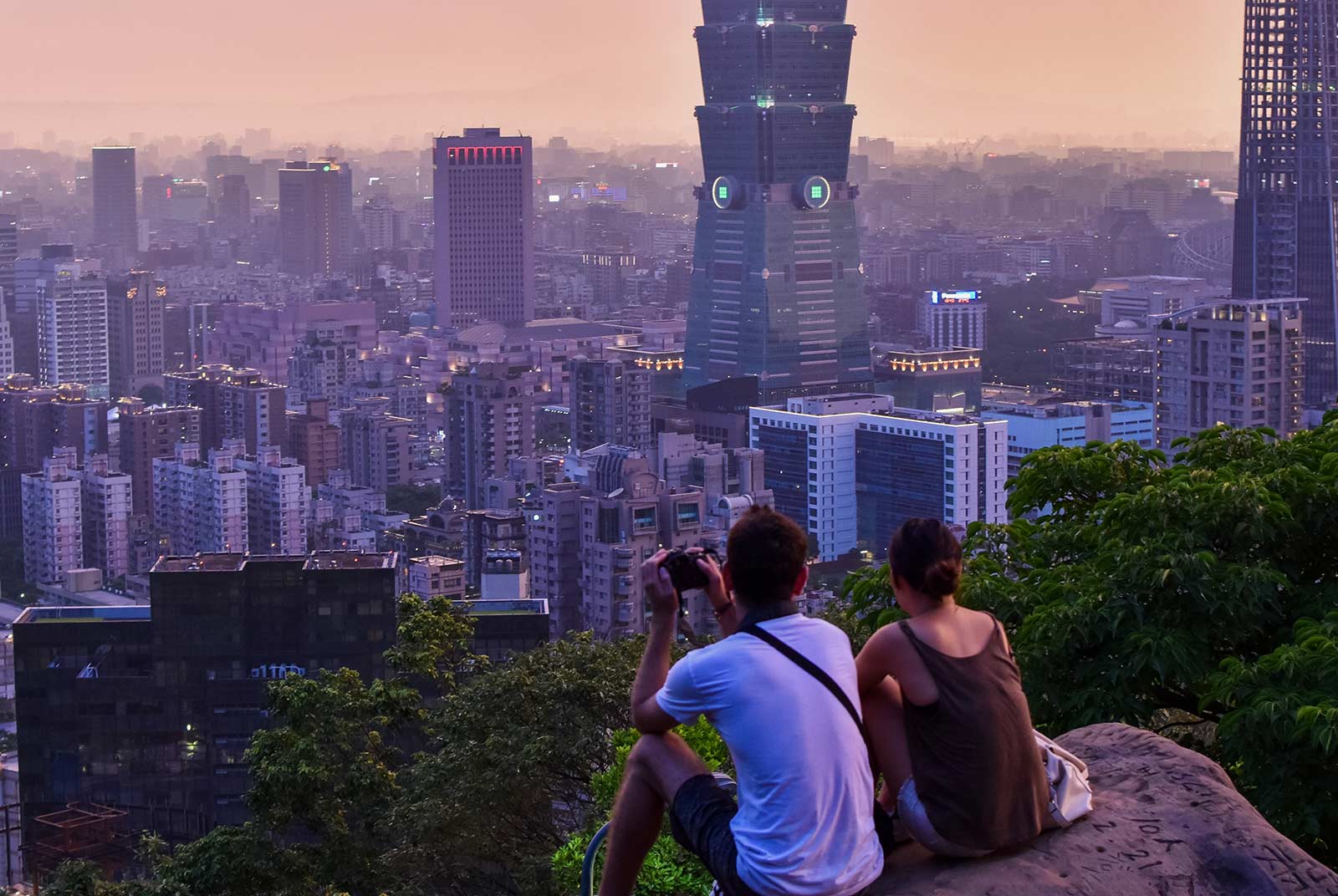O'rip Magazine Founder Wang Yu-ping
Bringing Out the Good in Life

Source:Ming-Tang Huang
She left a high-profile job as the events planning director for Eslite Bookstore to start a magazine in underdeveloped Hualien County. What convinced Wang Yu-ping to give up the city life?
Views
Bringing Out the Good in Life
By Yueh-lin MaFrom CommonWealth Magazine (vol. 475 )
Two of Taiwan's main provincial highways, No. 1 and No. 9, go their separate ways in the country's capital Taipei. Highway No. 1 heads directly south through western Taiwan, while No. 9 veers southeast and then south through the eastern counties of Yilan, Hualien and Taidong before reconnecting with its sibling on the island's southwestern coast.
The two roads, which were Taiwan's main transportation arteries before the construction of the country's major freeways, have long encircled the island, embracing the dreams of countless young Taiwanese. To Wang Yu-ping, the founder of O'rip magazine, the lure of Highway No. 9 proved irresistible.
"Me? I've always enjoyed publishing. I like telling the stories of good people and good things," says Wang in her elegant, second-floor O'rip Lifestyle Studio in Hualien City, the biggest urban area on Taiwan's relatively underdeveloped eastern coast, as a pleasant breeze flows in from the Pacific Ocean through the huge window on the office's eastern side.
Like the winds of Hualien, Wang gives people a comforting feeling wherever she appears.
It's the month of May, and Taiwan's first tropical storm of the year has just swept through, giving the dark mountain range hugging the coastline a poetic sparkle. I'm traveling along with Wang to Dafu Elementary School in the county's Guangfu Township, where she and six colleagues have organized a series of activities and small trips celebrating the opening of the Dafu Danong Forest Recreation Area. The area's sugar factories, elementary schools and train stations all have stories of the past to tell.
"Yu-ping has ‘matched' many people and things. The publication she runs and small trips she organizes all reflect local values, giving producers encouragement and consumers pleasant surprises, which are things Hualien is desperately in need of," says retired high school teacher Liao Mei-ju at the Dafu train station. Just as Liao was able to discern students' values and mentor International Biology Olympiad gold medal winners, Wang has successfully informed everybody about developments related to local farmers, artists and community culture in sparsely populated Hualien County, of which Hualien City is the capital.
High Class Travel
Wang's last job before leaving Taipei was as director of event planning for Eslite Bookstore, one of Taiwan's biggest bookstore chains. She was responsible for organizing the activities, promotions, advertising and resource coordination for all Eslite stores in the country.
In the spring of 2006, Wang invited a few friends to put together O'rip, a magazine issued once every two months to introduce the Hualien lifestyle from the perspective of people who actually live there. The free publication, available at all Eslite outlets, invites people to explore the area.
"O'rip" means "life" in the language of Taiwan's indigenous Ami people, but also conveys the sense of "the history of life" and "the history of culture." Eighty percent of her roughly dozen colleagues are new residents of Hualien, and they have begun to organize a range of activities – exhibitions, theme excursions, concerts, lectures, introductions of creative products – to more deeply explore the new home they have chosen, and express their attitudes toward life and how to live it.
Wang loves to say that before she got married, she was from Taipei, but after tying the knot, she became a Hualien native. She moved to the eastern county not because she fell in love with it, but because she wanted a family and decided to follow her husband Yang Wu-hsun back to his roots, where they could maintain a casual lifestyle.
"Hualien grows on people, because people can't get away from nature. The idea behind introducing some of the prominent people in the county is to make everybody feel proud. All we are is a bridge," Wang says.
Wang's core partner Su Su-min had just returned from Yuli Township, southwest of Hualien City, where she investigated the Bunun people's outstanding weaving skills. Because of her strong interest in art, Su has made introducing local artists and craftsmen to the public her top job priority.
Artsy objects based on stone sculptures, woodcarvings and woven crafts are the most eye-catching items in the O'rip studio. Even Chen Fu-yen, the general manager of Huashan Creative Park in Taipei, cannot help but ask, "Where exactly do these things come from?"
To Wang and Su, finding unique handcrafted works is not the least bit difficult, because they are all made by the people they have met, or are things they use in their daily lives. And when they showcase the people in local communities who make such products as aromatic oils and soaps, organic cotton T-shirts, organic rice, organic soybean milk or organic vegetables, O'rip is trying to encourage people to consume locally. The enterprise also takes travelers deep into every township of the county, helping small communities develop small-scale businesses.
"This is the highest class of travel hospitality, inspired by confidence in the local lifestyle," observes Stanley Yen, president of the Landis Hotels & Resorts Group and a recognized authority on Taiwan's hospitality industry.
Promoting Greater Social Responsibility
Yet there are questions over how to frame the major issues facing the county and whether O'rip has adopted the right approach.
"O'rip is too Pollyannaish, and I hope it will take on other social roles," says National Dong Hwa University professor and author Ming-Yi Wu.
But Wang believes the issues facing Hualien go beyond broad debates over the county's development, crystallized during the recent review of the "Statute for Development of Hualien and Taidong Regions," which was eventually approved by Taiwan's Legislature in mid-June.
Flipping through an article in the March edition of O'rip featuring Wang Chia-na, a woodworking teacher at Yu Dong Junior High School, and his insistence on sticking with his students, Wang believes people should be exposed to a broader range of topics related to Hualien, such as single-parent families and children being raised by their grandparents.
But as those issues are broached, Wang insists on chronicling the people who are working to solve the problems or making the area better.
Driving along Highway No. 9 as a breeze blows in from the Pacific, the red glow of the setting sun warming her dreams, Wang insists firmly but in a soft voice, "No matter how many negative things I see, I want to tell people about all the good things that are out there."
Translated from the Chinese by Luke Sabatier






